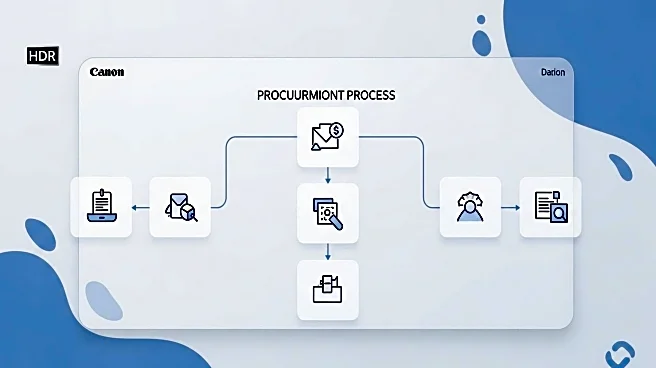What is the story about?
What's Happening?
The Federal Acquisition Regulation (FAR), a critical framework governing federal procurement, is undergoing a significant overhaul. This initiative, rooted in an April 2025 Executive Order titled 'Restoring Common Sense to Federal Procurement,' seeks to simplify the FAR by ensuring it includes only necessary provisions. The overhaul aims to reduce complexity, update outdated practices, and increase flexibility to accommodate innovative solutions. Key changes include simplifying language, revising information security protocols, and adjusting sustainability requirements. The overhaul also maintains support for small businesses and socioeconomic priorities, despite previous executive orders challenging diversity, equity, and inclusion programs.
Why It's Important?
The FAR overhaul is poised to impact the federal procurement landscape significantly. By simplifying regulations, the initiative aims to reduce barriers for small and emerging businesses, potentially broadening access to government contracts. The focus on digital acquisition and emerging technology could enhance the government's ability to procure cutting-edge services efficiently. However, the success of these changes depends on maintaining the essential meaning of regulations without altering settled law. The overhaul's emphasis on sustainability and small business support aligns with broader economic and national security interests, potentially fostering a more competitive and inclusive procurement environment.
What's Next?
As the FAR overhaul progresses, government contractors are advised to prepare for upcoming changes. This includes monitoring proposed rulemaking, assessing compliance systems, investing in training, and engaging with agencies to understand the impact of reforms. The implementation of agency-specific deviations is expected in the coming weeks and months, with public comment opportunities available for industry stakeholders to influence final requirements. Contractors should also consult with legal counsel to navigate the new regulatory landscape effectively.
















